Learning the Office Lingo
Nov 13, 2019
4 mins
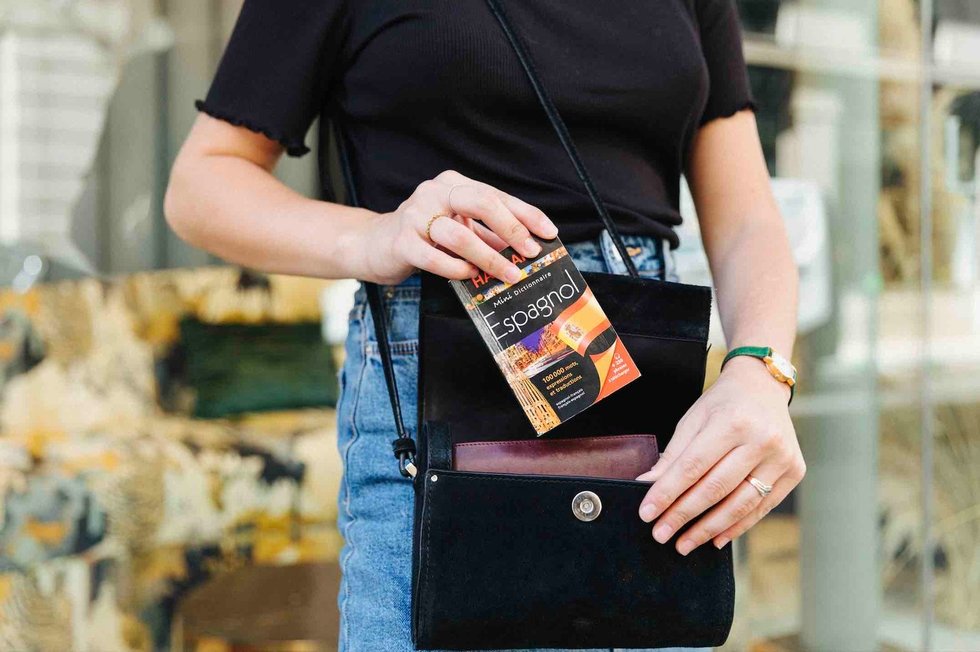
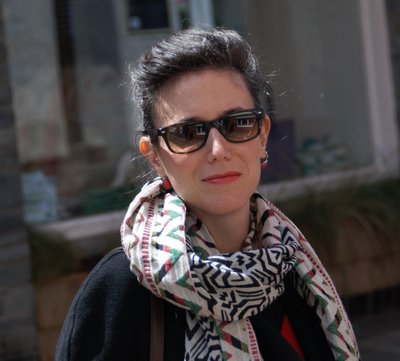
Freelance writer, journalist and author
It’s Monday morning and you’re headed to work. Should you say ¡Buenos días! or ¡Bon dia! upon arrival? With Spanish and Catalan both official languages, many expats are understandably confused when it comes to choosing. Basically, either is good, and if you’re feeling rusty on both, English is a safe bet in this international city. Here is out list of some key phrases, three ways, to help you out in the office.
Intros and making friends at work
ENG: Hi, I’m xxx. I’m new here.
SP: Hola, soy xxx. Soy nueva/nuevo en el trabajo.
CAT: Hola, sóc xxx. Sóc nova/nou a la feina.
ENG: Hello, it’s nice to meet you.
SP: Hola, encantada/encantado de conocerte/conocerle.
CAT: Hola, encantada/encantat de conèixer-te/conèixer-lo.
ENG: Would you like to grab a coffee?
SP: ¿Quieres tomar un café?
CAT: Vols prendre un cafè?
ENG: Would you like to get a drink after work?
SP: ¿Quieres tomar algo después de trabajar?
CAT: Vols prendre alguna cosa després de treballar?
ENG: Are there good places to go for lunch around here?
SP: ¿Me puedes recomendar algún sitio bueno para comer por aquí cerca?
CAT: Em pots recomanar algun lloc bo per menjar per aquí a prop?
ENG: Can you tell me where the kitchen/toilet/water machine/printer is?
SP: ¿Me dices donde está la cocina/el baño/la máquina del agua/la impresora?
CAT: Em dius on hi ha la cuina/el bany/la màquina de l’aigua/la impressora?
ENG: I’m from xxx and recently moved to Barcelona.
SP: Soy de xxx me mudé a Barcelona hace poco.
CAT: Sóc de xxx em vaig mudar a Barcelona fa poc.
ENG: What do you do here?
SP: ¿En qué trabajas?
CAT: En què treballes?
ENG: Which department are you in?
SP: ¿En qué departamento trabajas?
CAT: A quin departament treballes/treballa?
ENG: I used to work for xxx as a xxx.
SP: Antes trabajaba en xxx como xxx.
CAT: Abans treballava a xxx com xxx.
How to work it
ENG: Would you like me to update you on my projects?
SP: ¿Quieres/quiere que te ponga al día con mis proyectos?
CAT: Vols/vol que et/el posi al dia dels meus projectes?
ENG: Can I talk to you when you have a moment?
SP: ¿Podemos hablar cuando tengas/tenga un momento?
CAT: Podem parlar quan tinguis/tingui un moment?
ENG: Have you received the reports/budget/email I sent you?
SP: ¿Has/ha recibido el informe/el presupuesto/el correo que te/le he mandado?
CAT: Has/ha rebut l’informe/el pressupost/el correu que t’he/li he enviat?
ENG: Can we arrange a meeting?
SP: ¿Podemos organizar una reunión?
CAT: Podem organitzar una reunió?
ENG: As soon as I’ve finished what I’m doing I’ll get on it.
SP: En cuanto acabe con lo que tengo entre manos me pongo a ello.
CAT: Quan acabi amb el que tinc entre mans em poso amb això
ENG: I’ll get onto it right now.
SP: Me pongo a ello ahora mismo.
CAT: Em poso amb això ara mateix
ENG: I’m on it.
SP: Estoy en ello.
CAT: Ho estic fent.
ENG: Thanks very much for your help.
SP: Muchas gracias por tu/su ayuda.
CAT: Moltes gràcies per la teva/seva ajuda.
ENG: Thanks for looking at that.
SP: Gracias por mirarlo.
CAT: Gràcies per mirar-ho
ENG: Great!
SP: ¡Genial! (pronounced ¡renial!)
CAT: Genial! (pronounced ¡renial!)
ENG: See you later.
SP: Hasta luego.
CAT: Fins després.
Don’t put your foot it!
Here are our tips for keeping your communication professional.
I’m out of here! Me piro! Em piro!
It’s nice to be informal with your colleagues and speak the local lingo, but know who you’re speaking to. So instead of sounding elated at leaving the office, say,
ENG: I’m off, have a nice evening. See you tomorrow.
SP: Me voy, pasa buena tarde. Hasta mañana.
CAT: Me’n vaig, passa bona tarda. Fins demà.Thanks, man. Gracias tío. Gràcies tio
You might hear and pick up certain words and phrases, such as vale, and guay, but remember that written Spanish is more formal, so don’t let colloquialisms creep into your emails.
ENG: I don’t mind.
SP: No me importa.
CAT: No m’importa
Want to say “I don’t mind”? Be careful not to say the more relaxed “I don’t care,” which is “Me da igual.”Thank you! ¡Gracias! Gràcies!
Keep up the etiquette in the workplace. Don’t forget to say, please, thank you, and excuse me, even if others aren’t so hot on it.No smackers!
Nonverbal communication is important in Barcelona, and Spain as a whole, especially when it comes to greeting. A handshake is generally the standard professional greeting, or if a woman offers her cheek, gently give two kisses, on her right and left cheek. Be sure this is just a gentle touch of the cheek, rather than a full-on kiss!¡Jajaja!
You might by dying to crack a joke to ease the atmosphere, or maybe you like a sarcastic line or two. But be careful, as humor translates differently and your intended giggle might end up being more of an insult.¡Tu! You!
It’s so simple in English, but don’t forget to address those who are senior to you or older than you, to whom you would like to show some respect, with usted (written ud.). And when talking to groups, include everyone by using vosotros.
Master el Español rapido
- If you don’t use it, you lose it, so practice, practice, practice.
- Don’t be shy. It’s easy to be scared of making mistakes, but it’s the only way you’ll learn. After all, people respect someone who makes an effort to learn their lingo.
- Listen to it: Watch films with subtitles, listen to the radio, watch TV. Immerse yourself and you’ll find yourself on the fast track to fluency.
- Read the newspaper to reinforce what you hear and speak, and you’ll keep up with current affairs, to boot.
- Make friends with the locals. Let’s face it, socializing will make learning a lot more fun!
- Make notes. Jot down words and phrases in a little notebook and keep it somewhere you can easily consult it and put what you’ve picked up to good use. You’ll come to remember them in no time.
Get smart with your phone
Nómadas – For travel fans wanting to improve their Spanish
This weekly podcast by Spain’s national public broadcaster RTVE takes listeners on an aural adventure around the world. Each week, the presenters are in a different location, where local people take them around the best sights and tell interesting stories about their lives. Recent episodes have focused on Tibet, Navarra, and Dublin.News in Slow Spanish – Keep up with the national news!
If you’re eager to listen to current affairs and the latest news but your listening skills aren’t quite up to understanding the rapid-fire bulletins on Spanish television and radio, this podcast is an ideal stepping-stone.Notes in Spanish – A fun way to learn the local language
Produced by Ben Curtis, from the UK, and his Madrileña wife Marina Diez, this podcast covers a vast range of topics. The couple’s international perspective and friendly, relaxed chats are a pleasure to listen to, and have racked up tens of millions of downloads since they started out in 2005.

More inspiration: Work in Barcelona
Moving to Barcelona for work? Navigate the job jungle in this international hub with our insider tips, advice from locals and insights from industry experts.
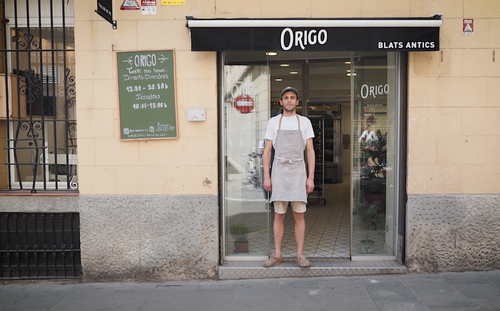
Work in Barcelona: François
Originally from Belgium, he left his job at Google in San Francisco to move to Barcelona with his wife, where he decided to open his own bakery.
Dec 11, 2019
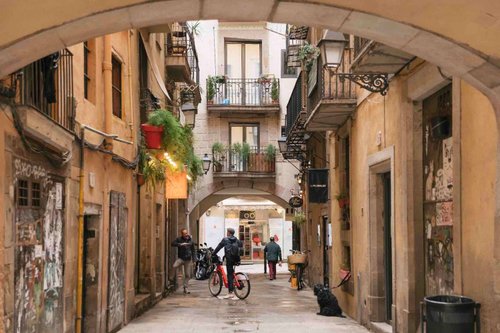
Work in Barcelona
Considering relocating to Barcelona? Let’s have a look behind the scenes to understand what it takes to be a happy expat in Barcelona.
Dec 11, 2019

Work in Barcelona: Amy
Born and raised in Canada, Amy moved to Barcelona to change career by retraining as a software developer. Here's her expat experience of the city.
Dec 11, 2019

My Barcelona: ‘The city is so much richer than it seems’
For Anaïs, Barcelona is such an enticing city that she has made it her home not once, but twice.
Nov 13, 2019
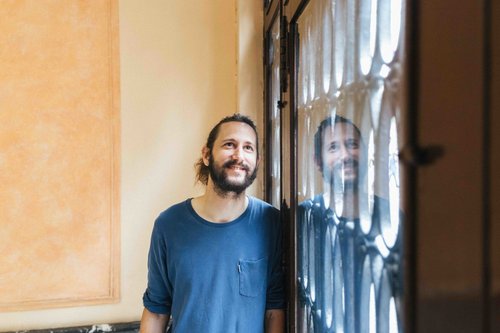
My Barcelona: ‘It’s the Silicon Valley of Europe’
Frenchman Erwan Riou originally qualified as an architect, but after a stint in Brazil, the 33-year-old started retraining as a programmer...
Nov 13, 2019
The newsletter that does the job
Want to keep up with the latest articles? Twice a week you can receive stories, jobs, and tips in your inbox.

Looking for your next job?
Over 200,000 people have found a job with Welcome to the Jungle.
Explore jobs